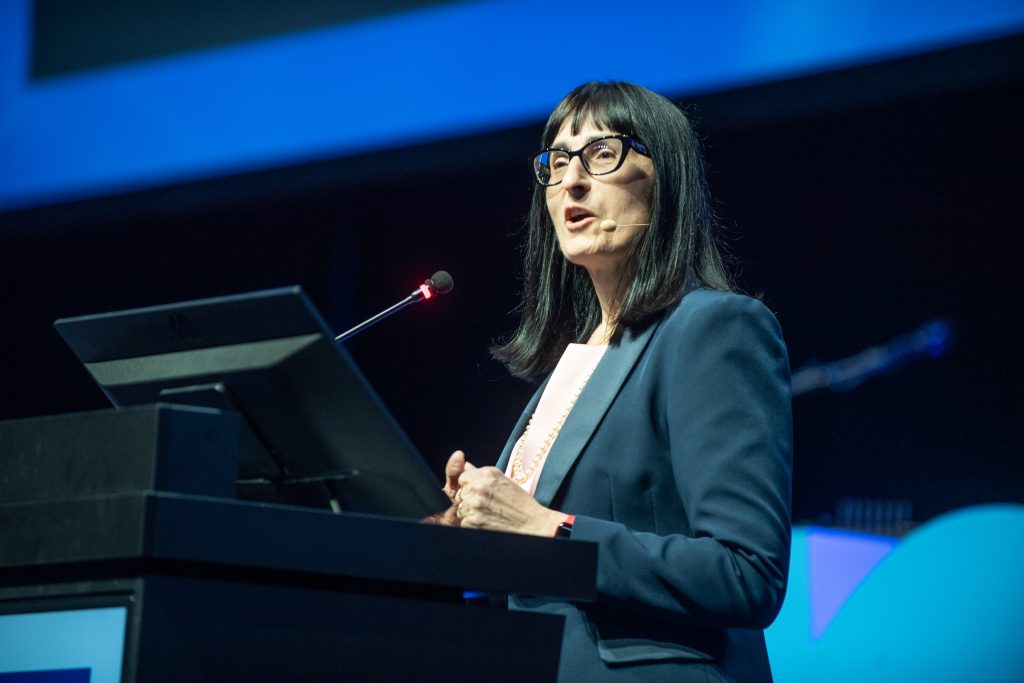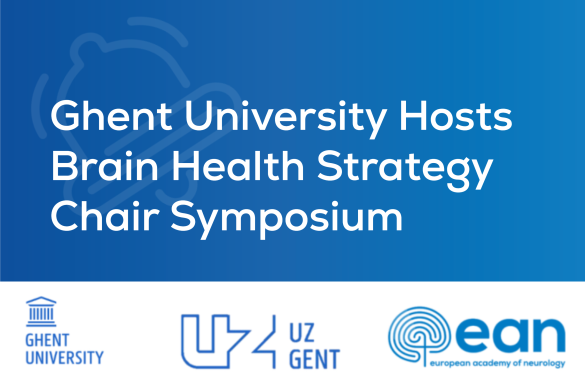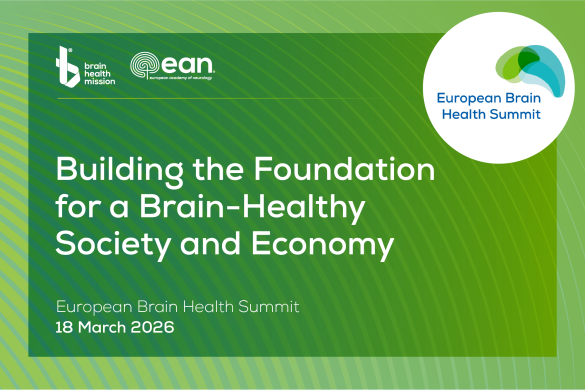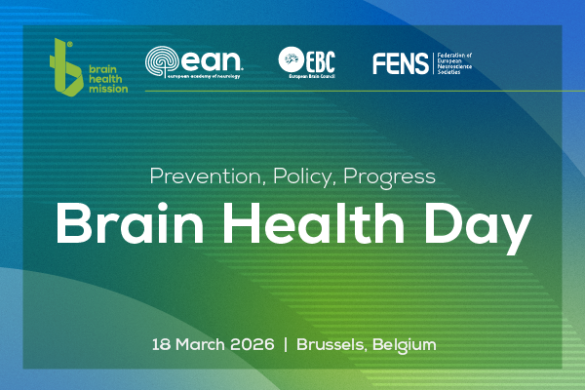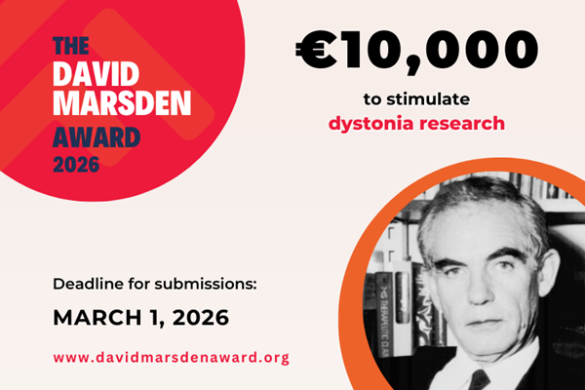by Hugo Hermantin
The 11th Congress of the European Academy of Neurology (EAN) officially opened in Helsinki, welcoming an enthusiastic community of neurologists, researchers and clinicians from across the globe. With more than 6,200 participants attending in person from 112 countries and an additional 1,800 following online, the Opening Session marked a crucial moment for the academy, underscoring its growing influence and reach in the global neurological community.
The impressive volume of over 2,000 abstracts submitted this year further demonstrated the vitality and dynamism of European and international neurology research, reflecting both the urgency and creativity that define the field today.

…
A New Strategic Vision for European Neurology
EAN President Prof. Elena Moro warmly welcomed the attendees, reflecting on how her dream to belong to a society driven by strong ethics, an engaged community and an unshakable commitment to improving care for people living with neurological conditions has now become a tangible reality.
Moro unveiled the EAN’s newly adopted four-year Strategic Plan, charting a bold and ambitious strategic roadmap designed to strengthen the capacity and impact of neurology across Europe. This plan, revolving around five core pillars: communication, advocacy, education, membership, and research, offers a comprehensive approach to enhance the visibility and effectiveness of neurological science and care delivery.
Moro reminded the audience of the collective strength of the academy, which represents over 45,000 neurologists through 48 national neurological societies. “We have the capacity and the responsibility to drive real change for our patients and societies,” she emphasised.
However, she also highlighted the pressing challenges that Europe faces in the neurological space: a shortage of trained neurologists, uneven access to cutting-edge therapies and the transformative but complex impact of artificial intelligence and other emerging technologies on the field.
Setting Priorities: Seven Pillars for Progress
Prof. Moro laid out seven strategic priorities designed to secure the future of neurology in Europe:
- Implementing National Brain Health Plans to guide prevention and care
- Structuring and optimising care delivery to patients
- Developing interventional neurology
- Integrating AI and new technologies into clinical practice
- Reinforcing general neurology and developing Centres of Excellence
- Promoting and funding cutting-edge research and innovation
- Improving the position of patients in research and care
As a significant structural shift, Moro also announced that – for the first time – the Chair of the EAN Residents & Research Fellows Section (RRFS) would serve as a full member of the EAN Board. This move was greeted as an essential step toward empowering and amplifying the voices of the next generation of European neurologists.
Championing the Next Generation of Neurologists
Alice Accorroni, current RRFS Chair, took the stage to present the RRFS’s growing role and extensive activities at the congress and beyond. Representing more than 2,000 early-career neurologists, the RRFS fosters professional growth. These activities extend to the congress through hospital visits, skills development sessions, dedicated talks, and workshops.
Accorroni highlighted the new EAN Certificate in Clinical Research in Neurology, a two-year programme specially designed to train young researchers in the essential competencies required to excel in clinical science. Applications are open until January 2026.
Recognising Excellence and Service
The session also honoured leaders who have significantly contributed to the European neurology field. Prof. Moro presented the 2025 Fellow of EAN (FEAN) titles to Marianne Dieterich, Joke Jaarsma and Ludwig Kappos, as well as the EAN Service Awards to Antonio Federico and Dafin Fior Muresanu for their outstanding dedication to the community.
Moro reminded the audience of the challenge they face in the form of statistics: the economic burden of neurological disorders in Europe exceeds €1.7 trillion, including €678 billion in direct healthcare costs, €264 billion in indirect costs and €726 billion in informal care – figures that highlight the urgency of better prevention, care and research.
Strengthening Research and Knowledge Sharing
Moro unveiled the ambitious EAN Scientific & Coordinating Panel Yearbook project, uniting 32 expert panels and more than 37,000 members to synthesize cutting-edge advances in neurology.
Claudia Sommer was announced as the new Editor-in-Chief of the European Journal of Neurology, which currently boasts 27 published guidelines with 25 more in development. The Jes Olesen Award recognised the most outstanding paper published in this leading journal over the past year.
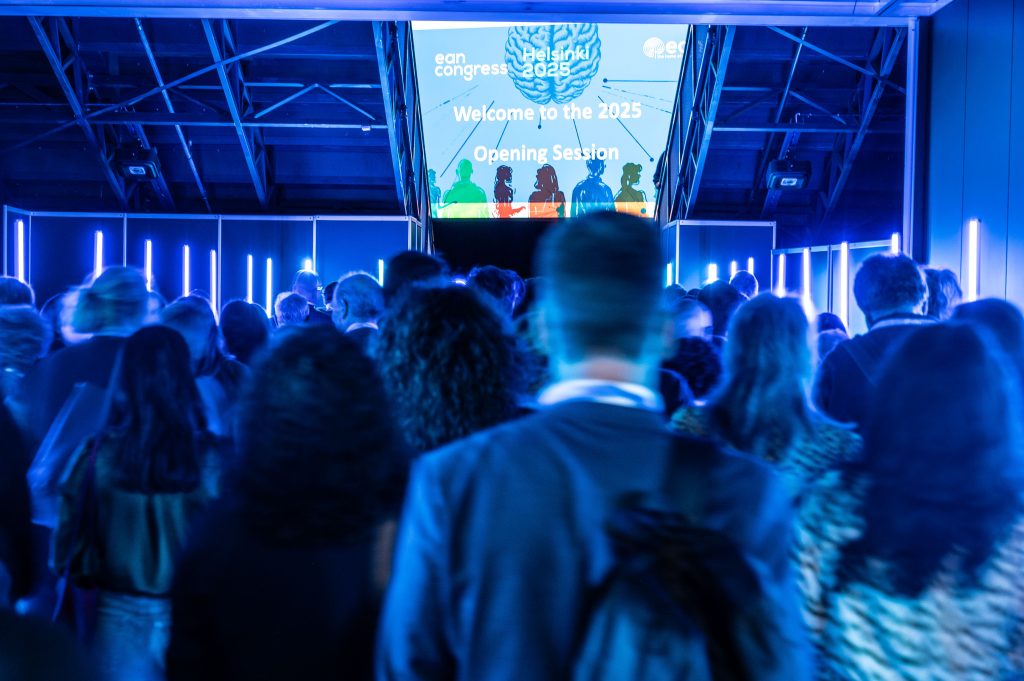
…
Advancing Education, Technology and Ethics
The EAN’s educational mission remains a cornerstone of its activities. In 2024 alone, over 5,000 members from 125 countries benefited from grants to attend educational sessions. The congress features 55 educational events with 200 speakers across six session formats, while the eanCampus continues to provide high-quality and accessible content for members globally.
Other forward-looking initiatives included the creation of a Task Force on AI in Clinical Neurology to ensure responsible, ethically sound integration of AI into practice, and the Neurologists’ Wellbeing Task Force, aimed at openly addressing mental health and burnout among professionals.
A Voice for Neurology in Europe and Beyond
The EAN’s role in advocacy was also strongly emphasised. Moro highlighted the organisation’s involvement in the European Brain Council and its ongoing collaboration with EU institutions to push brain health higher on the policy agenda. The EAN’s advocacy footprint now extends from Brussels to the United Nations and the G7.
Moro also proudly announced the Brain Health School Challenge, and the Public Brain Health Day – a part of the Helsinki Congress aimed at inspiring citizens to prioritise their brain health.
Celebrating Legacy and Innovation
The session concluded with an inspiring lecture from Prof. John Hardy, a pioneer in neurodegenerative disease research, who reflected on key discoveries regarding Alzheimer’s and Parkinson’s diseases and the promise of emerging technologies with the use of blood biomarkers for early detection.
The ceremony included a tribute to distinguished neurologists and a live performance of Finnish music, emphasising Helsinki’s unique role as the 2025 European Capital of Brain Health.
Missed the EAN 2025 Opening Session?
You can watch a full recording on the EAN Vimeo channel – no registration necessary!

